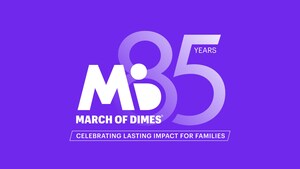The Leading Edge Of Medical Innovation: New Prenatal Genetic Tests Use Mom's Blood To Learn About Her Baby
What Parents Need To Know About These New Tests
NEW YORK, Dec. 13, 2012 /PRNewswire-USNewswire/ -- New prenatal tests can give some parents piece of mind – sooner and with greater accuracy and less risk of miscarriage than current tests – that the baby they're expecting doesn't have a disorder.
The new tests, which use fetal DNA suspended in the mother's blood, can test for chromosomal disorders such as Down syndrome (trisomy 21) and trisomy 18, and Rh blood incompatibility. They also can determine fetal gender, which allows health care providers to screen for disorders carried on the X chromosome, such as hemophilia.
These medical advances are raising questions that expecting parents may feel ill-equipped to answer. They also raise new concerns about the ability of the medical field to counsel new parents and explain what the tests can reasonably predict and what they can't.
Two experts will address these issues at a luncheon for reporters sponsored by the March of Dimes. Diana W. Bianchi, MD, executive director, Mother Infant Research Institute at Tufts Medical Center and a professor of pediatrics and obstetrics and gynecology at Tufts University School of Medicine, will explain what the cell-free DNA tests are, how they differ from existing prenatal screens and tests, as well as their effectiveness. Lee P. Shulman, MD, a professor of obstetrics and gynecology and director of the Northwestern Ovarian Cancer Early Detection and Prevention Program at the Feinberg School of Medicine of Northwestern University, will focus on consumer education about cell-free fetal DNA tests and explore questions parents should ask before and after such testing.
During pregnancy, fetal cells and cell-free fetal genetic material circulate in the mother's bloodstream. This DNA can be used to screen for certain genetic disorders without having to perform invasive procedures such as amniocentesis or CVS (chorionic villus sampling).
At present four widely used procedures assist health care providers in prenatal diagnosis. They are:
- Amniocentesis: a procedure that collects some of the amniotic fluid that surrounds the fetus for analysis. This is a diagnostic test.
- Chorionic villus sampling (CVS): a procedure that obtains tissue from around the placenta. This is a diagnostic test.
- Maternal blood tests: screening tests that use mother's blood to help identify problems with the fetal brain, spinal cord, intestines or chromosomes. These tests include alpha-fetoprotein (AFP), hCG and other hormones. As with all forms of screening, abnormal results require follow-up testing to make a diagnosis.
- Ultrasound: a scan using sound waves to visualize the fetus.
Cell-free DNA methods of screening are a new option.
"Prenatal diagnosis gives parents important information about the health of their baby and the status of their pregnancy. More often than not, prenatal screening reassures parents that their baby is healthy and that these disorders are not present," says Joe Leigh Simpson, MD, March of Dimes senior vice president for Research and Global Programs. "For a high-risk infant, prenatal diagnosis gives parents and health care providers options that may include planning for a health problem or arranging for delivery in a medically appropriate setting. The first step toward treating these problems is diagnosing them, and cell-free DNA methods, without the need for invasive measures, are welcomed."
Dr. Bianchi says, "This cell-free DNA blood test also has the potential to push beyond the boundaries of what is currently being screened for."
"The introduction of new prenatal screening tests that evaluate cell-free nucleic acids in maternal blood represents a profound improvement in our ability to identify women at increased risk for carrying fetuses with the most common chromosome abnormalities," Dr. Shulman says. "Still, this technology represents a limited screening protocol and should not serve as a substitute for diagnostic tests such as chorionic villus sampling and amniocentesis, which provide the most accurate and comprehensive assessment by the direct analysis of fetal tissue."
The American College of Obstetricians and Gynecologists and the American College of Medical Genetics recommend that information on prenatal genetic screening and diagnosis should be made available to all pregnant women and those considering pregnancy.
The March of Dimes is the leading nonprofit organization for pregnancy and baby health. With chapters nationwide and its premier event, March for Babies®, the March of Dimes works to improve the health of babies by preventing birth defects, premature birth and infant mortality. For the latest resources and information, visit marchofdimes.com or nacersano.org.
SOURCE March of Dimes
WANT YOUR COMPANY'S NEWS FEATURED ON PRNEWSWIRE.COM?
Newsrooms &
Influencers
Digital Media
Outlets
Journalists
Opted In





Share this article